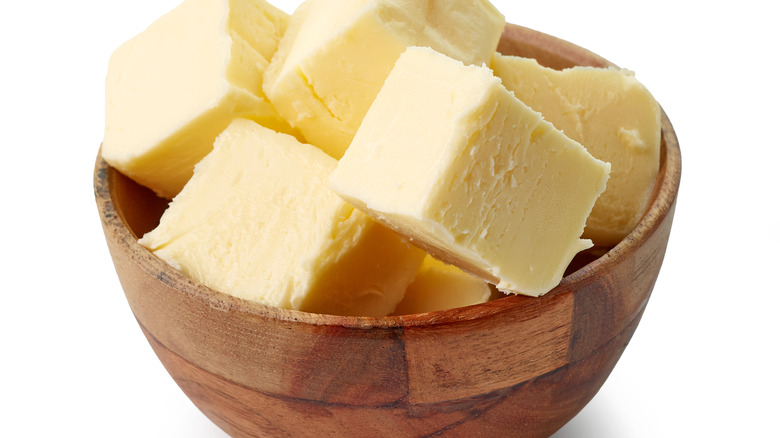The Secret Ingredient Geoffrey Zakarian Uses In His Sauces
Chef and Food Network personality Geoffrey Zakarian's storied culinary career began at the incomparable French fine-dining institution Le Cirque under two legendary chefs: Alain Sailhac and Daniel Boulud (via The Culinary Institute of America). After Le Cirque, Serendipity Social reports Zakarian ran the kitchen at the fabled 21 Club before turning 44 at the Royalton Hotel into one of the most talked-about eateries in New York.
Per the outlet, he joined Patroon in 1997, where he finally earned a three-star review from The New York Times. Zakarian followed that achievement by opening a slate of his own restaurants, each buzzier than the last, before Food Network came calling. Zakarian's star shone even brighter on TV, and he became a fan-favorite as co-host of "The Kitchen" and a judge on "Chopped."
Cooking made him a celebrity chef, but his dapper dressing made him a star. People magazine reported on his fashion-forward Tom Ford suits; and he landed at the No. 2 spot on the Village Voice's "Best Dressed Chefs" list, just behind the smooth sartorial sensibilities of Marcus Samuelsson.
Of course, a man with both a refined food and fashion palate recommends using only the best ingredients when cooking (via Insider). Zakarian's home fridge is stocked with items like capers, rose wine, and ... French salted butter, according to AOL. So it's no surprise that the latter is the chef's not-so-secret ingredient, since he shared it with Food Network.
Why Geoffrey Zakarian turns to French salted butter
During the butter-making process, churning the cream fractures the membranes that surround the milk fats. This fat clusters together, separating from the remaining liquid (buttermilk), as the Exploratorium explains. With salted butter, the salt is added during the churning process. This fully works the salt into the butter, enhancing its flavor. The Chopping Block argues this makes for a better, more flavorful spread.
Most U.S. supermarket butter is 80% fat, while French butter's legal minimum is 82%. Many French butters, however, particularly the artisanal brands like Le Beurre Bordier, have an even higher fat content at 84%.
The New York Times points out even a seemingly negligible 2% difference makes a profound impact on a butter's taste and texture. My French Life further posits that the fat content is only part of French butter's allure and says that culturing — or, fermenting the milk before churning — also plays a role. The bacteria from fermentation converts sugar into lactic acid, which gives French butter its signature tang. The bulk of American butter, by contrast, is pasteurized, killing all the bacteria, even the good kind. However, as American palates refine, cultured butter is slowly finding its way into supermarkets (via Bon Appétit).
The creamier and tangier French butter pairs well with bread and other bakery items, but also adds depth of flavor and richness to sauces, which explains why Geoffrey Zakarian turns to it to make his own velvety sauces. As he told Food Network, "French salted butter is so creamy and amazing, and the salt adds such a luxurious richness to any sauce."

